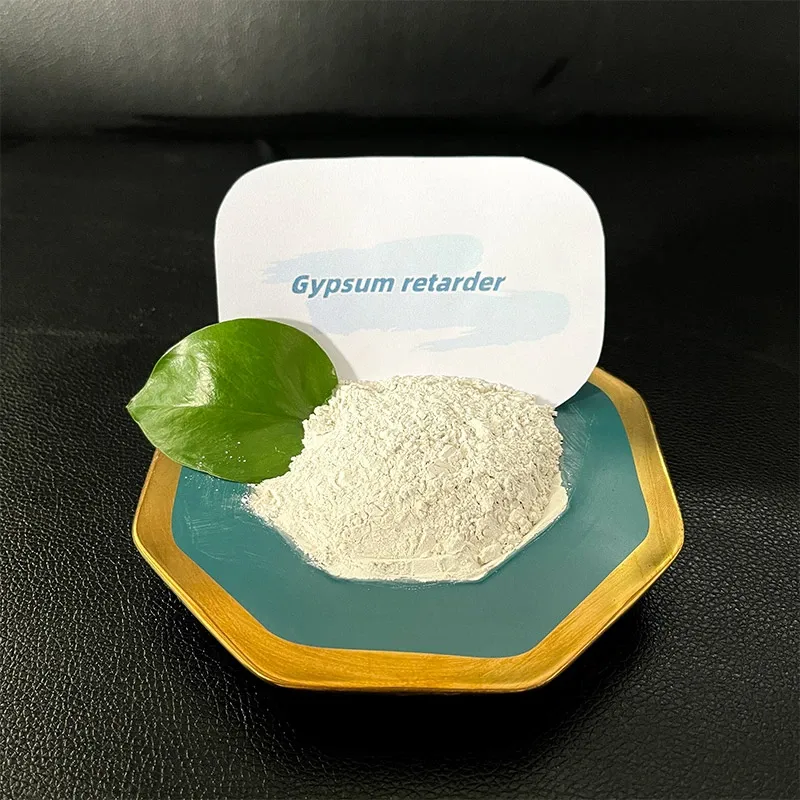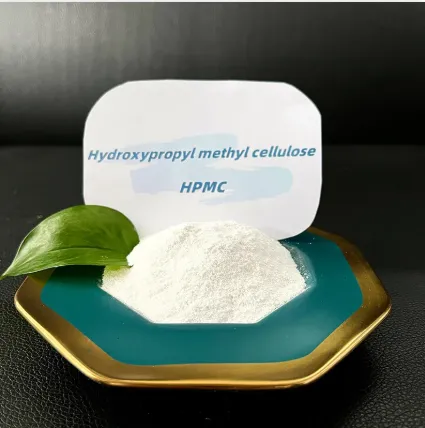
-

Add: HeBei ShengShi HongBang Cellulose Technology CO.,LTD.
-

Email
13180486930@163.com -

CONTACT US
+86 13180486930

High-Performance Polypropylene Fiber Reinforced Concrete Enhanced Strength & Durability
Imagine this: You're facing crumbling concrete in a recent project. Cracks appear too fast, and repair costs mount up. According to the National Ready Mixed Concrete Association, the U.S. spends over $15 billion every year fixing structural concrete failures. Why? Standard concrete alone just can't keep up with today's performance demands—especially for infrastructure, highways, industrial floors, and high-impact sites.
The answer is innovation.
It's time to consider polypropylene fiber reinforced
concrete. This isn't just another trend—it's the next evolution in construction durability. Let’s explore its strengths, compare options, and see how it can transform your build quality, efficiency, and ROI.

(polypropylene fiber reinforced)
Technical Advantages of Polypropylene Fiber Reinforced Concrete
Polypropylene fiber reinforced solutions are a game-changer in construction. When these fibers are added to the mix design, they make concrete tougher, less prone to cracking, and longer-lasting. The benefits are real—and measurable. Laboratory tests show that adding polypropylene fibers can reduce shrinkage cracking by up to 90%. That means less early-age cracking, a more beautiful finish, and reduced maintenance for years to come.
Here’s what makes polypropylene fiber reinforced concrete shine:
- Improved Flexural Strength: Boosts the tensile and bending capacity of concrete slabs.
- Crack Control: Fibers distribute stresses and stop little cracks from spreading.
- Enhanced Durability: Fewer cracks mean less water and chemical penetration—critical for outdoor projects.
- Fast, Simple Mixing: Polypropylene fibers are easy to blend into any standard mix design.
- Cost Savings: Less cracking and repair means lower lifetime costs and downtime.
Wondering about mechanical properties? Let’s look at a typical property table for fiber-reinforced mixes:
| Property | Standard Concrete | Polypropylene Fiber Reinforced |
|---|---|---|
| Compressive Strength | 3500 psi | 3500–4000 psi |
| Flexural Strength | 520 psi | 650–800 psi |
| Shrinkage Reduction | None | Up to 90% |
| Impact Resistance | Low | High |
Polypropylene fibers outperform basic mixes at every step, and they’re just as easy to use.
Polypropylene vs. Glass Fiber Reinforced Options: What Works Best?
Maybe you’re wondering: should I use polypropylene glass fiber reinforced composites, or stick with pure polypropylene? Here’s an honest comparison:
| Feature | Polypropylene Fiber | Polypropylene Glass Fiber |
|---|---|---|
| Tensile Strength | Moderate | High |
| Impact Resistance | Very High | Excellent |
| Chloride Resistance | Excellent | Very Good |
| UV Stability | Good | Moderate |
| Cost | Lower | Higher |
Choose glass fiber reinforced polypropylene for the toughest projects—think marine or chemical environments. For most civil, residential, or commercial jobs, pure polypropylene fiber reinforced mixes do the job brilliantly, at a lower cost.
Plus, if you’re optimizing for high impact, the mechanical properties of glass fiber reinforced polypropylene are outstanding. But remember, with either choice you’re miles ahead of traditional rebar or mesh-only systems.
Customized Solutions: Polypropylene Fiber Reinforced Concrete Mix Design
What’s the best mix design for polypropylene fiber reinforced concrete? That depends on your project:
- Low-traffic Floor Slab: Use 0.9 lbs/yd³ of microfibers for shrinkage and finish improvement.
- Industrial Floor: Jump to 3 lbs/yd³ macrofibers to handle impact and heavy load.
- Roadways/Bridges: Combine 0.5–1.5" length fibers at 1.5–2.5 lbs/yd³ for best flexural performance.
Our lab can help you optimize water/cement (w/c) ratio, aggregate gradation, and dosage rates based on your exact site needs.
Want a custom formulation? We offer tailored solutions for:
- Ultra-high performance concrete (UHPC) mixes
- Self-consolidating or flowable mixes
- Shotcrete and precast elements
- Architectural and colored concrete
You get the exact mechanical properties, appearance, and durability your project needs.
Real-World Applications: Success Stories from the Field
Let’s bring the numbers to life with real application cases.
Industrial Warehouse Flooring, Texas
The owner needed a 25-year service life, with heavy forklift traffic and zero downtime for maintenance. Using 2.5 lbs/yd³ polypropylene fibers, cracking was reduced by 95%. Maintenance spending dropped by half in the first three years.
Bridge Decks, Michigan DOT
Severe freeze-thaw cycles were creating surface spalling and rebar corrosion. By switching to glass fiber reinforced polypropylene, chloride penetration fell by 80%. Projected lifespan lifted by over 20 years.
Parking Deck, Los Angeles
Polypropylene fibers helped eliminate early-age shrinkage cracks in a 300,000 sq.ft. deck. Result? Zero reported repairs after five years of exposure and traffic.
Why Choose Us? Manufacturer Innovation, Service, and Support
It’s not just about the fiber—it’s about the manufacturer. We lead the way with strict quality controls, certified testing, and ongoing research partnerships. Our fibers meet ASTM C1116 and EN14889 standards. We back every order with thorough technical support, mix design assistance, and rapid fulfillment nationwide.
| Feature | Other Brands | Our Polypropylene Fibers |
|---|---|---|
| Fiber Uniformity | Inconsistent | Highly Consistent |
| ASTM/EN Certification | Partial | Full |
| Technical Support | Minimal | Comprehensive |
| Lead Time | 10–15 days | 3–7 days |
It’s simple: if you want zero headaches, better results, and complete support, we're your partner.
Take the Next Step: Polypropylene Fiber Reinforced Technology for Your Project
Polypropylene fiber reinforced solutions open the door to longer-life concrete, lower costs, and a build process you'll trust. Every project is unique—so every fiber choice should be, too. Let our dedicated team guide you through product selection, custom mix design, and on-site support. Experience proven benefits and data-driven advantages. Leads, architects, project managers, and contractors nationwide count on us every day—and keep coming back.
Ready to drive down maintenance, boost project ROI, and wow your clients? Contact [Your Company Name] today for a free consultation, same-day quotes, and unmatched quality. Harness the future—build smarter, build stronger, build with polypropylene fiber reinforced expertise from America's trusted manufacturer.
Professional FAQs: Polypropylene Fiber Reinforced Concrete & Mechanical Properties
Q1: What is polypropylene fiber reinforced concrete?
Polypropylene fiber reinforced concrete is traditional concrete enhanced with small synthetic fibers. These fibers improve crack resistance, flexural strength, and durability by distributing stresses throughout the concrete.
Q2: How do I decide the mix design of polypropylene fiber reinforced concrete?
Mix design depends on the project's load requirements, exposure class, and performance goals. Our experts tailor recommendations on water/cement ratio, aggregate selection, and fiber dosage to optimize mechanical properties and workability.
Q3: What are the mechanical properties of glass fiber reinforced polypropylene?
Glass fiber reinforced polypropylene exhibits excellent tensile (up to 130 MPa) and flexural strengths (up to 190 MPa), with high impact resistance and improved durability against chemical and environmental attack.
Q4: Is polypropylene fiber reinforced concrete more expensive than regular concrete?
The upfront costs are slightly higher, with an added $3–$5 per cubic yard on average. However, reduced maintenance and repair deliver significant long-term savings.
Q5: Where should I use polypropylene glass fiber reinforced materials?
Polypropylene glass fiber reinforced composites are ideal for projects requiring superior mechanical properties. Use them for bridge decks, marine structures, precast panels, or where impact and corrosion resistance matter most.
Q6: How long do polypropylene fiber reinforced products last?
When properly mixed and placed, polypropylene fibers can extend concrete service life by 20–30 years, depending on exposure and maintenance.
Q7: Can polypropylene fibers replace steel mesh or rebar?
For shrinkage and temperature crack control, yes. For structural reinforcement under high loads, fibers complement but do not fully replace rebar. They’re best used as part of a holistic reinforcement plan.

(polypropylene fiber reinforced)
FAQS on polypropylene fiber reinforced
Q: What are the main benefits of using polypropylene fiber reinforced concrete?
A: Polypropylene fiber reinforced concrete offers improved crack resistance, durability, and impact strength. It helps control shrinkage and settlement cracks. These properties make it suitable for a variety of construction applications.Q: How does the mix design of polypropylene fiber reinforced concrete differ from normal concrete?
A: The mix design incorporates polypropylene fibers, usually at 0.1% to 0.3% by volume. The water-cement ratio and aggregate proportions remain largely unchanged. Fiber dispersion is essential for uniform properties.Q: What is polypropylene glass fiber reinforced composite?
A: Polypropylene glass fiber reinforced composite is a material where glass fibers are embedded in a polypropylene matrix. This combination enhances strength and stiffness. It is widely used in automotive and construction industries.Q: What mechanical properties are improved in glass fiber reinforced polypropylene?
A: Glass fiber reinforced polypropylene exhibits higher tensile strength, flexural strength, and impact resistance than pure polypropylene. It also has greater dimensional stability. These enhancements make it suitable for load-bearing components.Q: Can polypropylene fiber reinforced concrete be used for floors and pavements?
A: Yes, polypropylene fiber reinforced concrete is ideal for floors and pavements. It helps minimize surface cracks and improves durability. Its use extends the lifespan of such structures.-
Ethyl Cellulose Powder as a Pharmaceutical BinderNewsJul.10,2025
-
Blending Fibre Natural and Synthetic for PerformanceNewsJul.10,2025
-
Starch Ether For Construction: The Advanced Mortar Additive RevolutionNewsJul.10,2025
-
MHEC Cellulose in Cement-Based Renders and PlastersNewsJul.10,2025
-
Micronized Rubber Powder Dispersion TechniquesNewsJul.10,2025
-
Impact of Cream of Tartar Plaster Retarder on Final StrengthNewsJul.10,2025
-
Rubber Powder Durability in ConstructionNewsJun.26,2025











